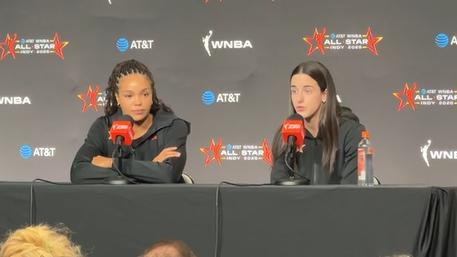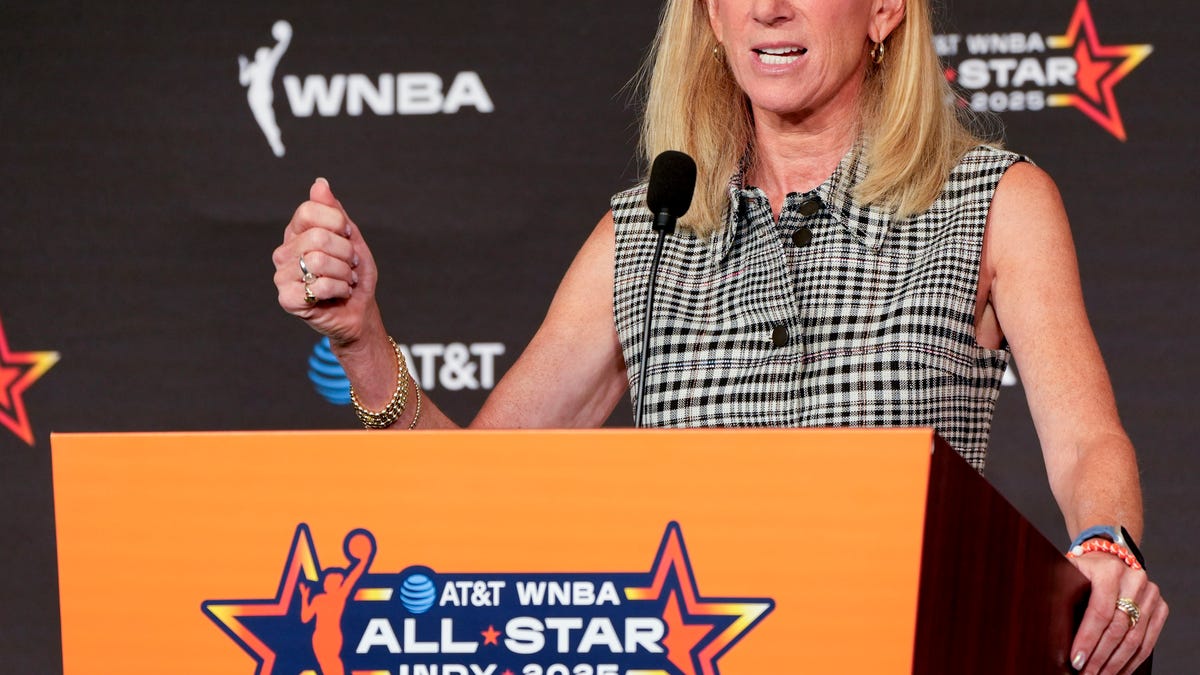
Caitlin Clark and her role in WNBA CBA negotiations: ‘This is very important for our future’
Caitlin Clark and her role in WNBA CBA negotiations: ‘This is very important for our future’
INDIANAPOLIS – Officiating has been a well-documented problem in the WNBA this season.
From what the Indiana Fever coaching staff thought were a litany of missed calls in the final seconds of a loss to New York on May 24, to six ejections and four technicals in a game between the Fever and Connecticut Sun on June 18, to star guard Caitlin Clark needing to be held back after a comment from an official on July 15, the Fever have had their fair share of it.
“Players are faster, they’re better, they’re bigger, they’re stronger,” Fever coach Stephanie White said on June 18. “They’re as good as they’ve ever been there, as athletic as they’ve ever been. The game is fast. Now, things are happening quickly. Everybody’s getting better, except the officials. So we got to find a way to remedy it. I mean, you’ve heard every coach talk about it, so I don’t know what the answer is.”
It’s not just a problem in Indianapolis, either. Minnesota Lynx coach Cheryl Reeve and Golden State Valkyries coach Natalie Nakase have each spoken out against the officiating, from the consistency to their ability to manage the game.
WNBA Commissioner Cathy Engelbert said ahead of the All-Star Game the league evaluates officials every game, and they’re looking into ways to improve it.
“We hear the concerns, we take that input, and every play is reviewed, we spend hours and hours on hours,” Engelbert said. “Obviously, we then use that to follow up with officials training. Obviously, consistency is important … I realize consistency is the name of the game, so I think it’s something we definitely look at and evaluate.”
White first spoke out about the officiating on May 18, when the Fever had a contentious loss to New York, 90-88, in one of the first games of the season.
White thought there were two non-calls in the final 36 seconds of that game — one where Natasha Cloud blocked DeWanna Bonner, following through to hit her face, and another when Cloud wrapped her arms around Clark and pushed on her elbow to poke the ball out of Clark’s hands.
Another instance in those final 36 seconds was a called foul on Fever guard Lexie Hull, which White thought was a clean block. She couldn’t challenge it, however, as she didn’t have any timeouts left.
It turned a close game, White said, into a game that was dominated by inconsistent refereeing.
“We can send stuff in and communicate our grievances, so to speak, but I don’t know that I ever feel like the system works,” White said on May 24. “We’re not looking for a change. We’re just looking for consistency.”
White was fined for those comments for an undisclosed amount.
Another game dominated by subpar officiating came on June 18, when two separate fights broke out. The first came when Sun guard Jacy Sheldon poked Clark in the eye, and Clark immediately reacted. Other teammates quickly got between Sheldon and Clark, and Sun guard Marina Mabrey ran into the scrum, puffing out her chest and knocking Clark to the ground.
Mabrey was originally only given a technical foul for that, and was allowed to stay in the game.
Later in that game, Fever guard Sophie Cunningham got into a fight with Sheldon after pulling her to the ground while she was going up for a layup. Cunningham and Sheldon’s fight spilled over to the stands while officials tried to break them up. Cunningham was ejected with a flagrant 2, while Sheldon and Allen were given technicals for fighting and also ejected.
“When the officials don’t get control of the ballgame, when they allow that stuff to happen, and it’s been happening all season long,” White said on June 18. “… you’ve got competitive women who are the best in the world at what they do, and when you allow them to play physical, and you allow these things to happen, they’re going to compete, and they’re going to have their teammates’ backs. It’s exactly what you expect out of fierce competition. I started talking to the officials in the first quarter, and we knew this was going to happen. You could tell it was going to happen. So they got to get control of it. They got to be better.”
The league did take some action on that game, as Mabrey’s technical foul was upgraded to a flagrant 2 a day later — she would’ve been ejected if it was called in-game.
Engelbert said training is ongoing with officials, including throughout the season, especially when instances like that happen.
“There’s an independent evaluation of officials, there are ramifications,” Engelbert said. “So, it’s something we need to continue to work on. And as our game has evolved, so has our officiating … I know that no one’s ever happy with officiating, all sports deal with it, but we’re working hard to make sure we put the best product on the court, and our officiating follows that.”
Chloe Peterson is the Indiana Fever beat reporter for IndyStar. Reach her at capeterson@gannett.com or follow her on X at @chloepeterson67. Get IndyStar’s Indiana Fever and Caitlin Clark coverage sent directly to your inbox with our Caitlin Clark Fever newsletter.

